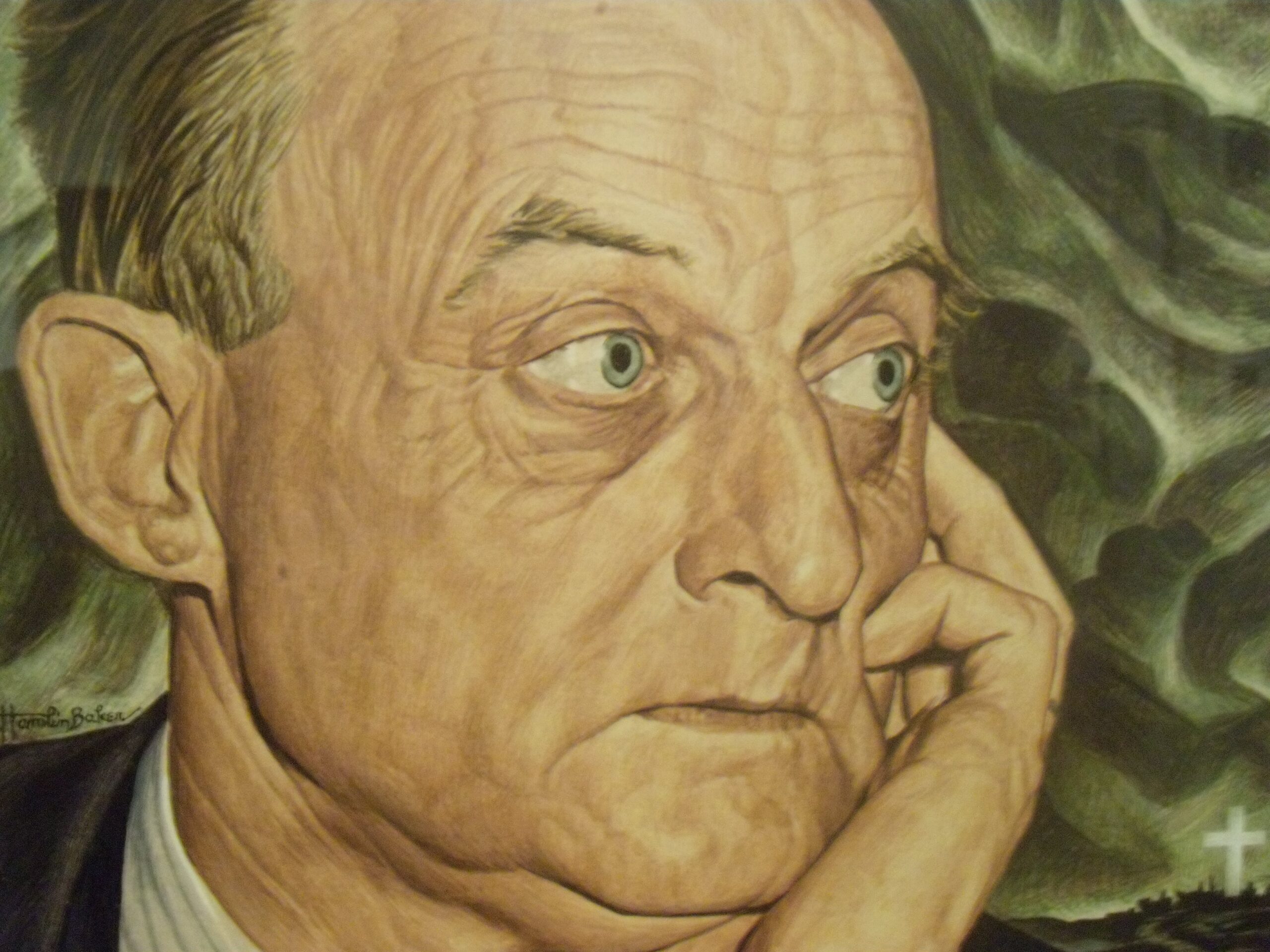Trans: Gender and Race in an Age of Unsettled Identities
By Rogers Brubaker
(Princeton University Press, 2016)
Quem deus perdere vult prius dementat, or as John Dryden renders the Latin proverb in an elegant heroic couplet, “For those whom God to ruin has design’d, / He fits for fate, and first destroys their mind.” This sententia ordinarily applies to individual men and women, either historical or literary, who make tragic errors leading to catastrophe because they fail to perceive or to come to terms with reality. Consider, for example, Sophocles’s Ajax slaughtering the sheep and cattle of the Greeks, having mistaken them for his foes, who have, by intrigue, denied him the arms of the dead Achilles as the boldest surviving Greek warrior.
There is no reason, however, to think that the author of Trans, Rogers Brubaker, professor of sociology and UCLA Foundation chair at the University of California, Los Angeles, is personally or individually mad. As academic writing goes these days, his is generally clear and matter of fact; and he would probably offer congenial company over coffee in the faculty lounge or a drink in an airport bar. Nevertheless, his new book, Trans, is a work of madness—not because the author is mad, but because he is writing within the protocols of an academic regime that is mad, and that has increasingly infected with madness the society under whose auspices the academy flourishes.
Brubaker informs us that Trans emerged out of the fortuitous “outing” of Rachel Dolezal, then the president of the Spokane chapter of the NAACP, as a white woman just ten days after Caitlyn Jenner had appeared in a provocative photograph on the cover of Vanity Fair (do they know the origin of this title?) in “her” new identity as a “woman.” As Brubaker observes with respect to the latter, “Mainstream media commentary was strikingly positive, applauding her courage and validating her identity as a woman; even President Obama tweeted his support.” Dolezal, on the other hand, “was widely condemned—and ridiculed—for identity fraud, ‘cultural theft,’ and a racial ‘masquerade’ that was the contemporary equivalent of blackface.” The peculiarity of these responses does not altogether escape the author: “Paradoxically, while sex is a biological category in a way that race is not, sex and gender are understood to be more open to choice and change than are race and ethnicity.” Professor Brubaker nonetheless regards this as “an intellectual opportunity” and invites us to think not just “about trans” but “with trans.”
He presents himself as a disinterested, even scientific, observer of a social phenomenon, but it is clear from the outset of his book that such impartiality is impossible for him and, I should add, for anyone dealing with this subject. Notice that Brubaker in the above quotation applies feminine pronouns to Jenner. And then there is this disclaimer: “I am an outsider not only to the fields of gender and transgender studies but also to the experience of crossing gender or racial boundaries. My analysis is no doubt shaped and limited by my own identity as a white cisgender male.” To acquiesce in former Olympic decathlon champion Bruce Jenner’s discovery that he is really a woman and abuse language accordingly, to accept the validity of an ideological coinage such as “cisgender”—these features of Trans prejudice the case even before the discourse is well under way.
To be sure, demurral over the use of these terms may be regarded as equally prejudicial, but that is the point. It is not really possible for reasonable men and women, possessed of even the rudiments of a liberal education, to have a proper argument over such a matter. If being either male or female is an integral element in being human, and it is, then the premise with which the “transgender” movement begins is manifestly false. No logical argument can be held between positions that are based on wholly contradictory premises, especially when one of the premises can hardly be maintained in good faith. The “prejudice” that all human beings are either men or women (even if genetic abnormality or physical trauma has in some cases left male or female nature incomplete) is simply a fact of biology.
Brubaker’s efforts to rationalize the denial of this fact lead him into sheer absurdity:
If subjective gender identity is today endowed with credibility and authority, this is in large part because it is widely understood to be grounded in a deep, stable, innate disposition. Thus while the sex-gender distinction allows gender identity to be disembodied and denaturalized, the “born that way” story allows it to be re-embodied and renaturalized. It is this asserted objectivity of subjective identity [emphasis in original] that makes it possible to defend choice in the name of the unchosen and change in the name of the unchanging.
In this way, an obstinately asserted error in scientific fact leads effectively to the denial of the logical principle of noncontradiction.
In addition to taking seriously what he calls the “trans of migration”—that is, the transition of a man into the role and status of a woman, and vice versa—Brubaker also endows with an aura of plausibility the “trans of between” and, as in the following passage, the “trans of beyond”:
It names a new position that transcends not simply the either-or, once-and-forever logic of the gender binary but also the prevailing one-dimensional bipolar framework through which we construct and imagine the space of gender possibilities. That is, the categories “trans woman” and “trans man”—and, even more clearly, the category “trans” itself—transcend not just the gender binary but the gender continuum [emphases in original]. They transform the space of gender categorization from a one-dimensional continuum into a two-dimensional space, defined by the cis-trans axis as well as the male-female axis.
By this logic, the formula 2 + 2 = 22 may be said to “transcend” arithmetic.
Brubaker tries to mask the intrinsic irrationality of the position he is expounding with a display of routine progressive bias. “Essentialists and voluntarists used quasi-syllogistic reasoning to underscore the similarities between changing gender and changing race.” Why “quasi”? The author can hardly be said to have exemplified authentically syllogistic reasoning. “Much of the essentialist commentary was expressly partisan. Commentators on the cultural right gleefully seized on the Dolezal revelations as a weapon in the culture wars.” Naturally, only conservatives are said to “seize gleefully” on “weapons.” Most egregious is Brubaker’s treatment of one of the most distinguished scientists to raise questions about the transgender/transsexual project:
Policing [gender] in the name of nature is illustrated by the claim of Paul McHugh—the former psychiatrist in chief of the Johns Hopkins Hospital, who identifies as a conservative Catholic—that sex change is “biologically impossible” and that people who have sex reassignment surgery “do not change from men to women or vice versa [but] become feminized men or masculinized women.”
It probably is not necessary to note that the religion or lack thereof is never mentioned regarding advocates of sex change and transgenderism. Moreover, the use of the verb “identifies” in this context is especially venomous, suggesting that a man who calls himself a woman has done nothing different from a man who calls himself a Catholic.
Such routine biases may seem trivial in themselves, but they help explain why Brubaker’s book rests on a postulate that has all the scientific credibility of the phlogiston theory of heat or the conception of the earth as flat. This is regrettable, because the purpose of the book seems to be a reconsideration of the validity of absolute racial categories, an altogether reasonable, indeed worthy, undertaking. The warrant for doing so, however, is the wide and growing acceptance of the “fluidity” of “gender” categories.
Brubaker is inhibited by what seems an ineluctable commitment to progressive ideology from accepting the consequences of what he concedes to be concrete facts and unimpeachable logic. The “general will” of a critical mass of fellow ideologues takes precedence over reality itself, thus providing a paradigm of mass delusion:
The much-tweeted claim that transracial is “not a thing” was a superficial slogan, driven more by political positioning than by intellectual analysis. Yet it pointed to an undeniable truth. Transracial is indeed not a thing in the same sense as transgender; it is not a socially recognized and validated identity. Transgender, by contrast, has been socially defined as real; it is therefore—in the words of the now-classic Thomas theorem—“real” in [its] consequences.” Transgender has been recognized, validated, and institutionalized in cultural idioms, public narratives, ways of thinking and feeling, social practices, legal and organizational categories, political claims-making, social science research, and popular culture. For a nontrivial segment of the population, transgender is no longer a contested novelty; it is a taken-for-granted reality. Nothing comparable can be said about transracial.
Would it serve any purpose to remind Brubaker that in the not-so-distant past the intrinsic inferiority of African Americans was “a taken-for-granted reality” by a “nontrivial segment of the population”?
Further, there is the danger of thinking in the wrong way and associating intellectually with the wrong kind of people that would be devastating for anyone’s progressive credentials: Hypatia: A Journal of Feminist Philosophy was recently excoriated for publishing “In Defense of Transracialism” by Rebecca Tuvel, an assistant professor of philosophy at Rhodes College. According to a report in The Chronicle of Higher Education, “Critics blasted the article as a product of white and cisgender privilege, said it discounted important scholarly work by transgender and black academics, and accused its author of using harmful language.”
Evidently worried about such a response, Brubaker attempts to distinguish his own argument from anything that smacks of retrograde perspectives: “Cultural conservatives, moreover—especially religious conservatives—are more deeply committed to preserving sex and gender boundaries than racial and ethnic boundaries. For religious conservatives, sex and gender are central to the created order in a way that race and ethnicity are not.” Hence Brubaker concocts his elaborate scheme of “thinking with trans” in order to piggyback “racial fluidity” onto the socially validated category of “gender fluidity.” In other words, he has attempted to open up a reasonable conversation about the ambiguous category of race by comparing it to the perfectly unequivocal category of sex (obfuscated by using the deliberately vague term “gender”). The procedure is patently absurd.
Trans is a telling illustration of the intellectual barrenness, indeed the madness, of progressive ideology and its resultant incapacity to deal sensibly and justly with important political and cultural issues. There are without a doubt physical and cultural features that enable us to distinguish various racial and ethnic groups. By these criteria, Rachel Dolezal is no more a black woman than Bruce Jenner is any kind of woman at all. Nevertheless, the children that Rachel Dolezal bore to a black man can claim to be a mixture of both races. Their existence and that of millions more like them demonstrates that race is not an immutable or absolute quality.
The result is a social and cultural situation that calls for scholarly and political attention. Brubaker signally fails to provide much guidance. He notices how the Dolezal case intersected with broader controversies about the status of race: “the proposal to include a ‘multiracial’ option in the U.S. census met with strong resistance for just this reason: it threatened to disturb the logic of the system of ethnoracial counting and categorizing.” But he neglects to draw the obvious conclusion regarding our “affirmative action” regime. He frequently mentions how black men and women have attempted to “pass” as white in order to take advantage of what is now widely denounced as “white privilege” but gives little consideration to the anomaly of a white woman attempting to pass as black, a phenomenon suggesting that “for a nontrivial segment of the population” there is some advantage to being black.
The progressive elites who have dominated our cultural and intellectual life and much of our politics for more than two generations are incapable of coming to terms with the forces of moral disintegration that they have unleashed because their ideology blinds them to reality. It would appear that God has fit them up for fate. It is dismaying that their destruction may engulf our whole society, even our very civilization.
R. V. Young is professor emeritus of English at North Carolina State University and former editor of Modern Age and the John Donne Journal.













